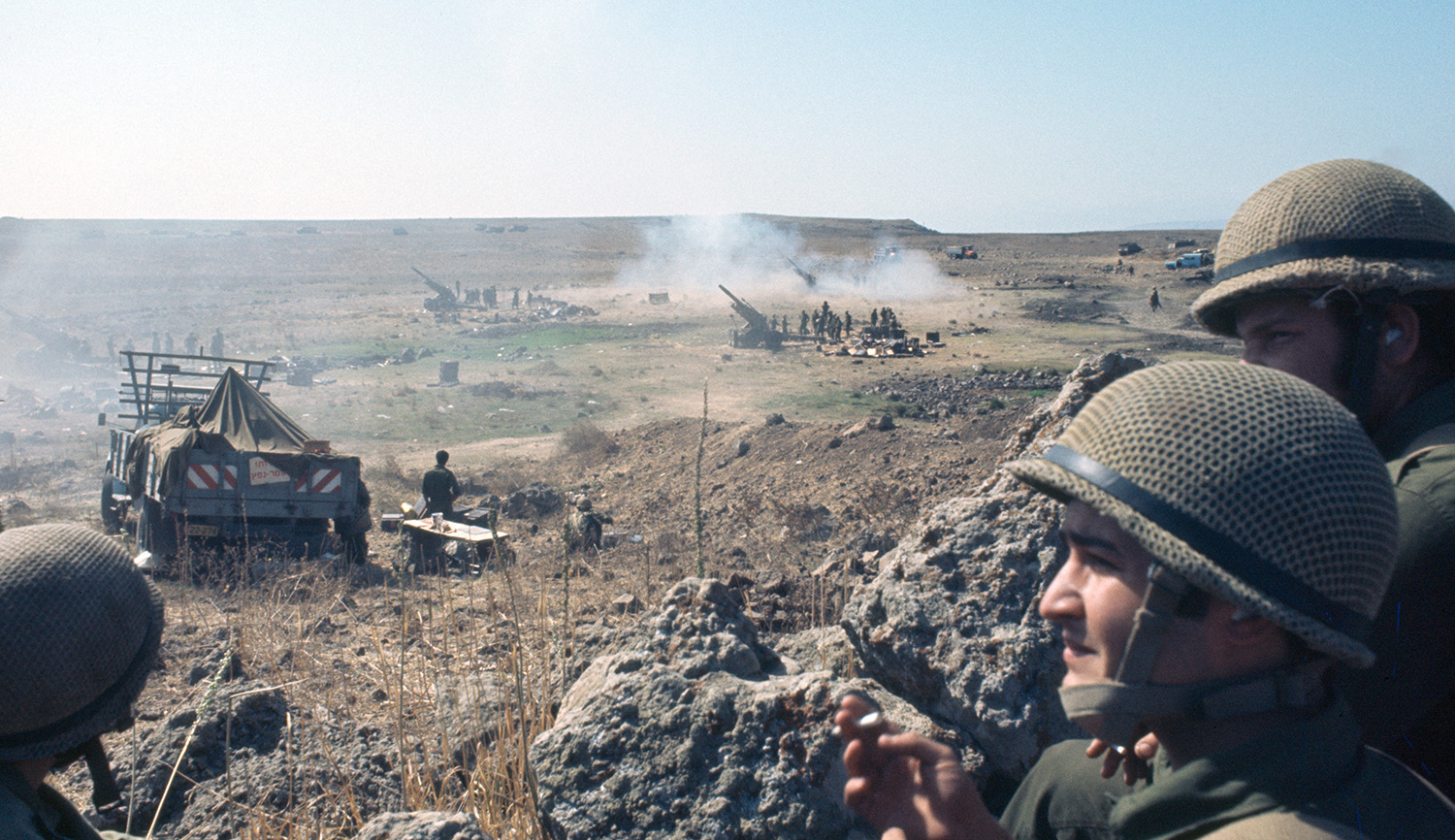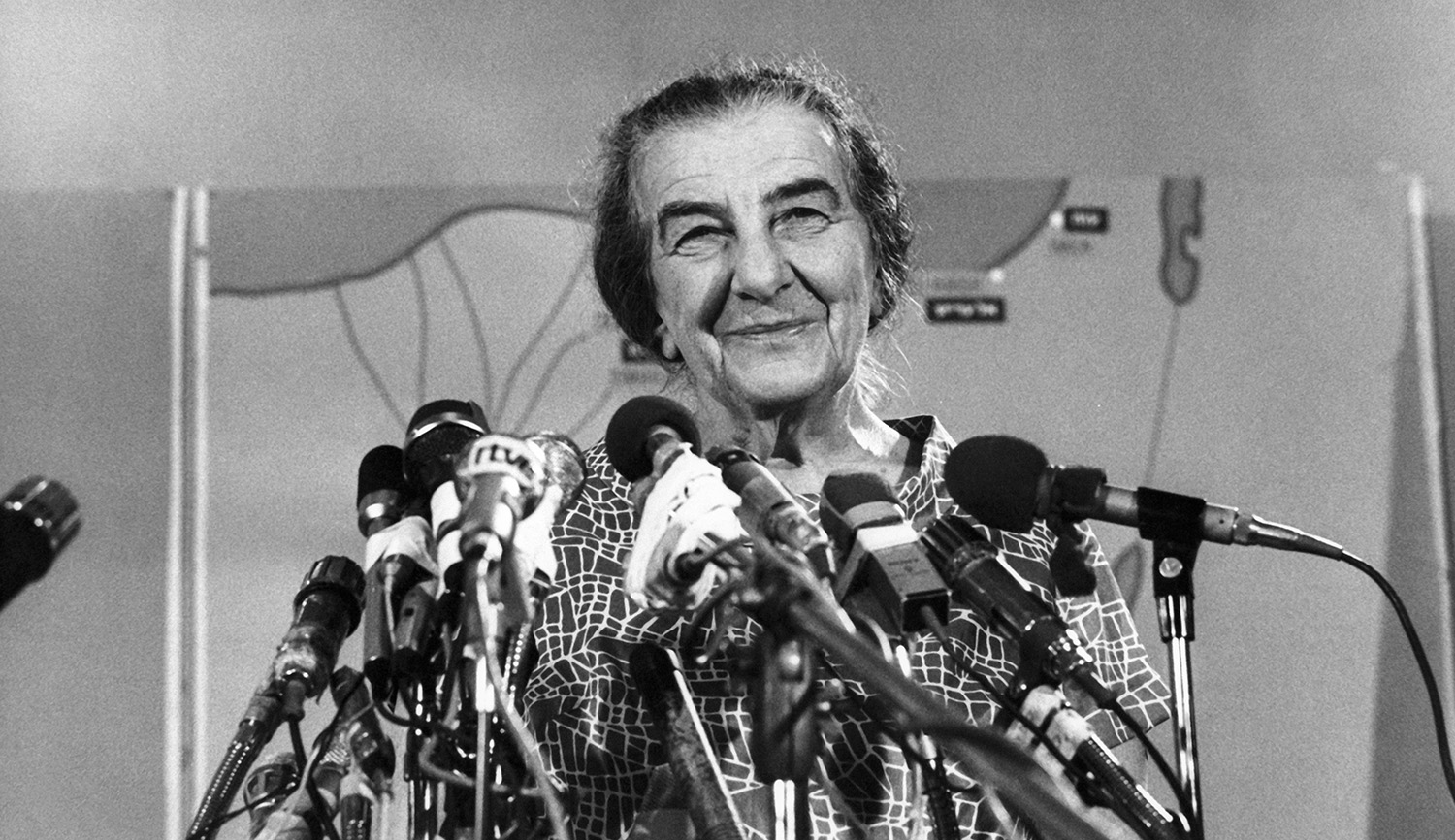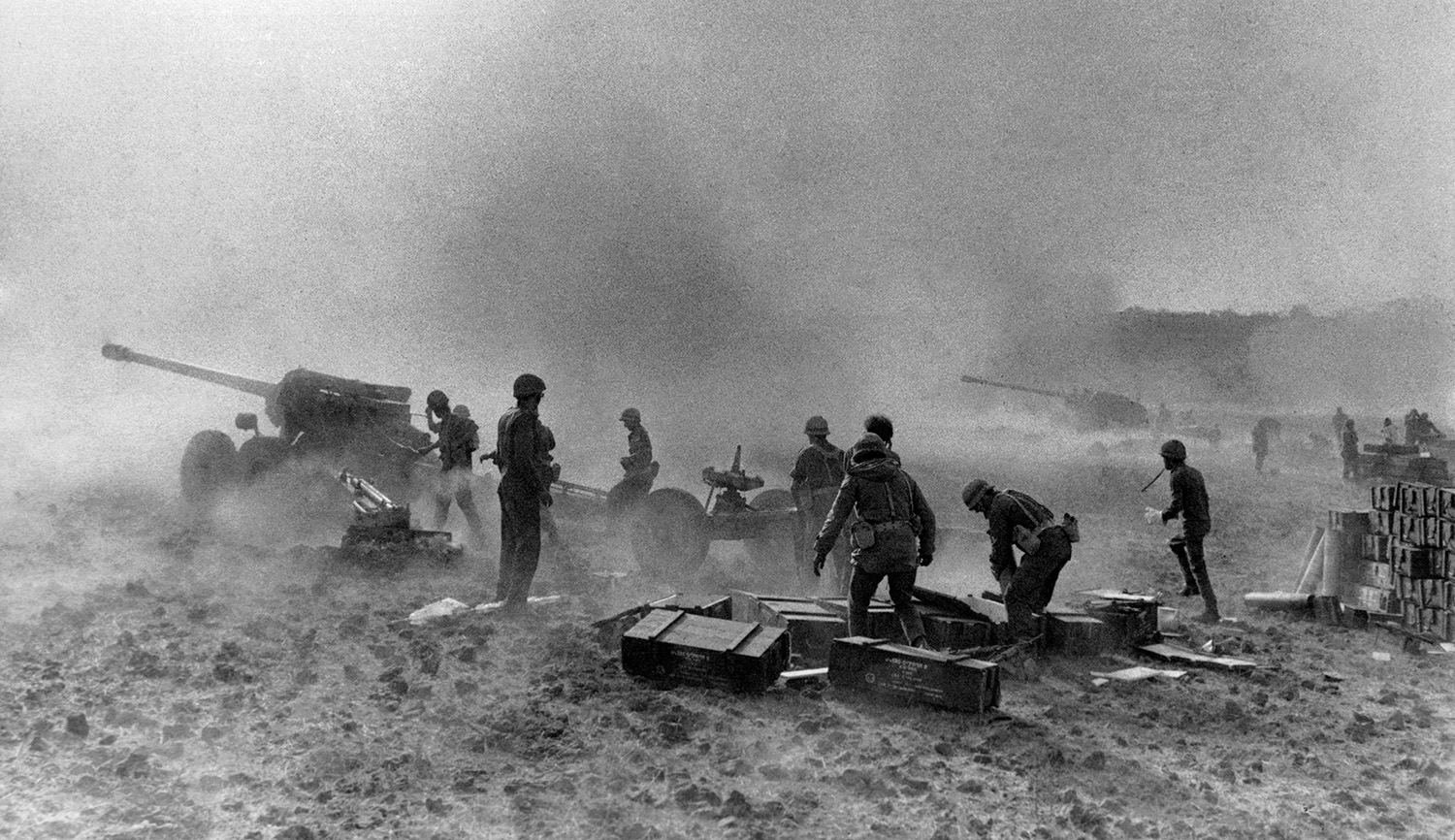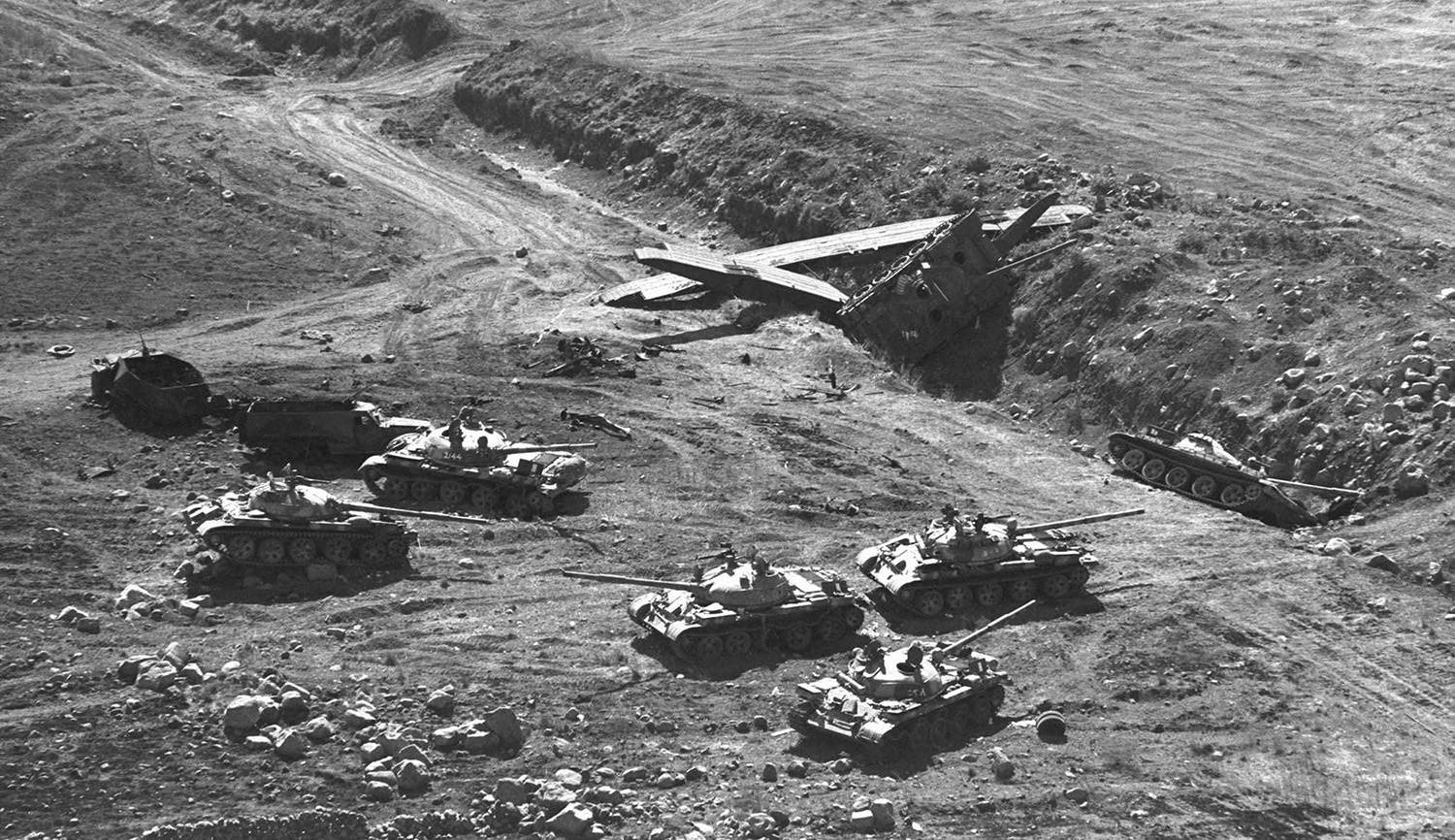A friend of mine once asked the former secretary of state George Schultz what makes a good secretary of state. “It helps to have a few ideas,” Schultz responded. He wasn’t joking. In the upper ranks of the State Department, one encounters a special type of person, the highly literate non-intellectual. Starting at the assistant-secretary level and moving higher, one encounters well-educated men and women who have often spent long stints at major universities and prestigious research institutes, minds who possess all the necessary machinery to process, shape, and compare ideas with ease. Capable of writing and speaking fluidly, they also present ideas in such a compelling fashion that one is left with the impression that ideas actually matter to them.
But they don’t. The character traits that propel a person up the greasy pole of political power and the traits that foster a commitment to the life of the mind often negate one another. The people who typically attain the title of secretary of state aspire in their heart of hearts to serve their political party or their nation, generally, or simply to exist beautifully at the upper rungs of government. Advancing a specific worldview is the last thing on their minds. Power, not ideas, motivates them.
And then there is that rarest of beings, Henry Kissinger, a secretary of state with deep intellectual commitments who also possessed a remarkable capacity to amass power. In the Nixon administration he enjoyed the strong, almost unconditional support of the president, who, sharing a commitment to the same ideas, hired Kissinger purely based on intellectual affinity. Thanks to their colorful personalities, their personal faults, and the political scandals and controversies that roiled the Nixon administration, the Vulcan mind-meld between president and secretary of state and the importance that both men placed on ideas often do not receive the attention they deserve. Any account of the Nixon-Kissinger foreign policy that fails to focus on their ideas misses the main storyline.
With respect to the Middle East, what were those ideas? In sharp contrast to their predecessors, Nixon and Kissinger understood Israeli military power to be an asset to America, not a liability, and they formulated a strategy designed to exploit that power—a strategy that used the pressure that Israel brought to bear on Egypt to pull President Anwar Sadat away from the Soviet Union. The most meaningful test of a strategy is its result, and Nixon and Kissinger’s strategy was a resounding success. From the Sinai disengagement agreement of 1974 until now, Egypt has fired no shots in anger at Israel. Since 1948, Egypt had been the primary antagonist of Israel, the primary organizer of the global anti-Zionist movement. The Sinai Disengagement Agreement not only brought that role to an end, it also set in motion one of the greatest coups in the history of American diplomacy, namely, the movement of Egypt from the Soviet camp into the American orbit in the cold war.
In my Mosaic essay on the Yom Kippur War, I labeled Nixon and Kissinger “the greatest supporters of Israel that have ever run American foreign policy” primarily because of these results, but also because they maintained their commitment to Israel under fire. It is one thing for a president to be “pro-Israel” in the risk-free manner of all those American political leaders have visited synagogues, donned kippahs, and affirmed to adoring congregants that they get Israel in their kishkes. It is altogether another to organize a major airlift to Israel when doing so would force them to stare down the leaders of the Soviet Union in a nuclear standoff.
In his very thoughtful and informed critique of my essay, Uri Kaufman casts doubt on my central thesis, first by invoking Nixon’s well-documented disparaging remarks about Jews. Thanks to his penchant for taping every utterance, Nixon preserved his distasteful comments for all posterity. They are certainly eye-catching, but what are they evidence of? While they tell us something about of the character of the man, they say next to nothing about his policies toward Israel. For insight into those policies, we must turn back to his formal strategic ideas—and to his success in applying them. Did Nixon have an anti-Semitic streak? Certainly. But did his anti-Semitism contort his strategy? No, never. Nixon’s personal animus toward Jews never colored his policies. He was a pro-Israel anti-Semite and, as such, he has helped us understand what it truly means to be “pro-Israel.”
Secondly, Kaufman claims that Kissinger revealed himself to be insufficiently pro-Israel because he supposedly held up the resupply of the Israeli military for four or five days starting on October 9, and because he supposedly rushed to shut down the war before Israel could destroy the Egyptian Third Army. I disagree with both interpretations. Instead of picking through the complex evidence related to both episodes, however, let’s assume, for the sake of argument, that Kaufman is correct in both cases. Do his points, if true, refute my thesis?
To be “pro-Israel,” in my view, is not to deliver to Israel everything that it wants at the exact moment it demands it. No president or secretary of state has ever met that standard, and none ever will. To be pro-Israel is to have a vision of the regional system that regards Israel as an asset and that clearly defines the respective roles of Israel and the United States in maintaining that system. Kissinger’s strategy was designed to build a stable order in the eastern Mediterranean, one that would end the Egyptian-Israeli conflict and pull Egypt into the American camp in the cold war. He succeeded at those tasks while honoring all the commitments that he and Nixon ever made to Israel. In the process, he did more for Israel than any other secretary of state.
Another very thoughtful response to my essay came from Eitan Shamir, who is less concerned with my treatment of Henry Kissinger and more concerned with the criticisms that I expressed of Defense Minister Moshe Dayan. Shamir states that I followed the lead of other historians who have cast doubt on Dayan’s state of mind in the early days of the war and that I have not personally investigated all the claims and counterclaims regarding that issue and tested them closely against the documentary record.
He is certainly correct. It was only in preparing the essay that I discovered the influence over Israeli historical memory of the “War of the Generals,” which is the name given to the fights that broke out among IDF commanders (and Moshe Dayan) regarding the mistakes of the Yom Kippur War. These fights began during the war and continued for many years after it. In some ways, they have yet to end, as Shamir’s response indicates.
Nevertheless, it seems to me that Shamir’s exoneration of Dayan goes too far. The testimony of many witnesses indicates that his mood was so sullen in the early days of the war that it sapped the morale of others. Perhaps Dayan was not on the verge of a mental breakdown, but he was certainly incapable of exercising the kind of leadership that moment required.
One’s sympathies instinctively migrate to Daniel Elazar, the chief of staff whose career was destroyed by Agranat Commission. Elazar had to run the war while dealing with a defense minister who was deeply involved in operational planning and yet fully political at the same time. Dayan, for example, began hitching his political wagon to Ariel Sharon’s rising star even as the war was still raging. An iconic photo of the conflict shows a smiling, uniformed Dayan standing next to Sharon, who has a bandage on his head. (This was after many very tense exchanges between the two men during the previous weeks.) Remember, Dayan was the minister of defense. What was a senior minister in the government doing wearing a uniform on the battlefield in Egypt with a general in the middle of the war? The answer is obvious: getting his photo taken in order to rehabilitate his reputation by linking himself to Sharon’s military successes.
Shortly after the end of the fighting, Yaakov Shimshon Shapira, the minister of justice in Golda Meir’s cabinet, publicly demanded that Dayan resign. But Meir chastised Shapira, and forced him to resign instead. Many in the public and in the press decried Meir’s handling of the episode. Despite having disciplined Shapira, Meir herself came to believe that honor and decency indeed required Dayan to resign. Her breaking point came when the Agranat Commission recommended the resignation of Elazar, whom Meir respected. After the initial losses, Elazar had shown remarkable resilience in recovering lost ground and in managing an exceptionally fast-moving and chaotic war. It seems likely to me that he is one of the great unsung heroes of the IDF’s history.
As defense minister, Dayan had increased the level of chaos by meddling in operational decision-making. But the Agranat Commission scrupulously avoided assigning responsibility to civilian officials, a technicality that Dayan treated as a personal vindication. Golda Meir did not share his view. Why was Elazar responsible but Dayan, who was deeply involved in operations, not? The decision struck many, including Meir, as deeply unjust. I can’t help but agree with Meir.
I cannot follow Shamir’s reasoning about the importance of surprise. He assumes that if Israel’s early-warning system had worked as expected, then the IDF would have mobilized according to standard plans. But we have at our fingertips the record of the debate between Elazar and Dayan on the morning of October 6, when both men knew war was coming within hours. Elazar recommended a full mobilization and Dayan recommended against—for fear of provoking the Americans. We simply cannot assume that, all other things being equal, early warning would have led to a mobilization.
And that brings us back to Kaufman’s argument. If you want to blame Nixon and Kissinger for something, blame them for telling Israel not to preempt. But when you look at the big picture of how they succeeded in simultaneously advancing America’s interest and helping Israel secure victory in its hour of need, how much can you really blame them?
More about: Foreign Policy, Henry Kissinger, History & Ideas, Israel & Zionism, Middle East, Yom Kippur War







